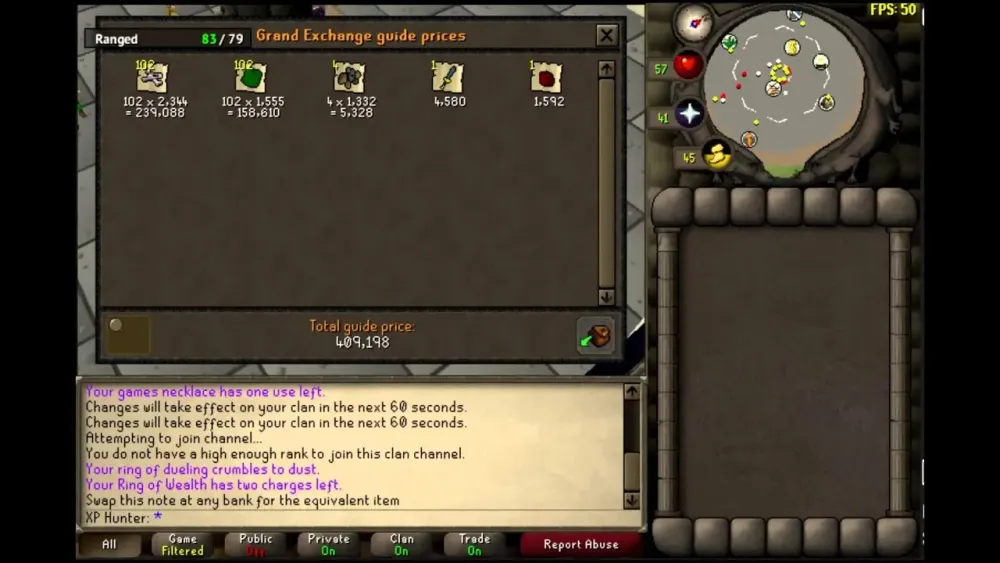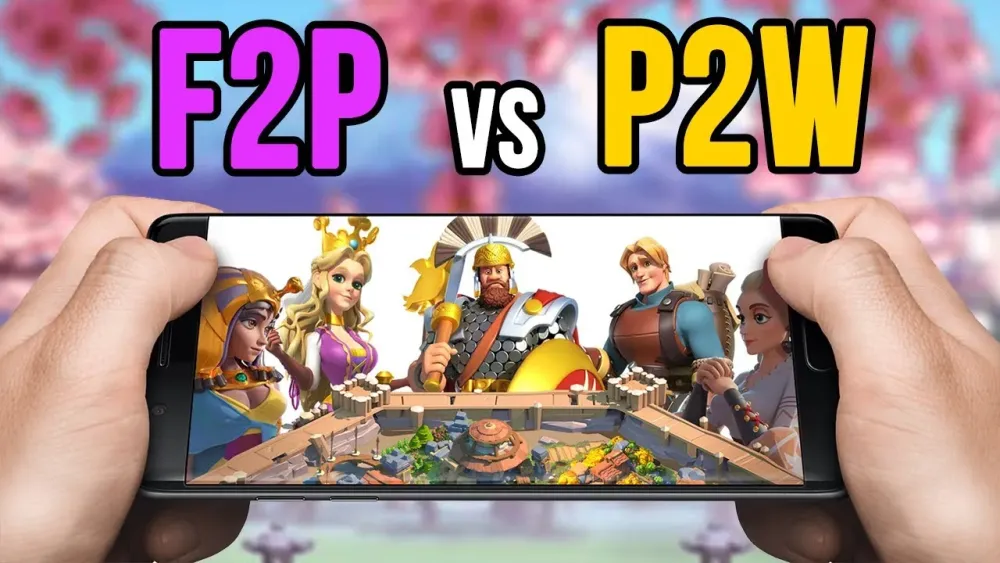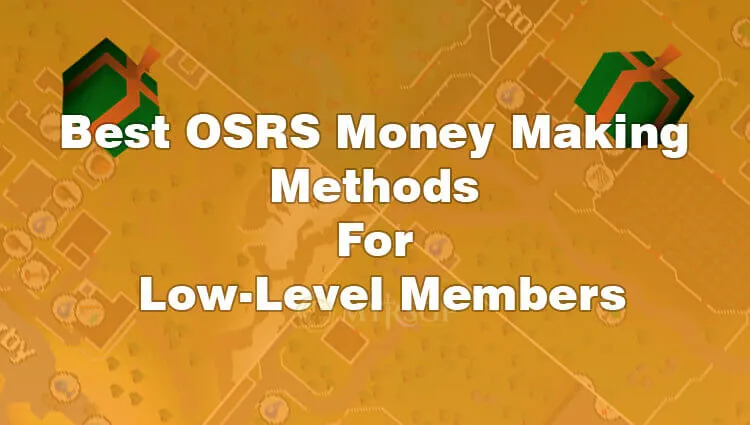Your cart is empty
Is OSRS Pay to Win? Understanding the Free-to-Play vs. Pay-to-Play Model

Old School RuneScape (OSRS) is a popular massively multiplayer online role-playing game that has captivated players since its return in 2013. Built on the nostalgic foundation of its predecessor, OSRS offers both free-to-play and pay-to-play options, creating a diverse gaming landscape. This article delves into whether OSRS can be considered “pay to win,” particularly examining the differences between the free and premium experiences. By understanding the game’s economic model, players can better navigate their choices and enjoy the game to its fullest.
The free-to-play (F2P) experience in OSRS allows players to access a significant portion of the game without spending any money. Players can create an account, explore the vast world of Gielinor, and engage in activities such as combat, questing, and skilling. However, the F2P experience has limitations that impact progression and overall gameplay.
In the F2P mode, players have access to a limited selection of skills, with only 15 skills available compared to the 23 in the pay-to-play (P2P) version. This restriction can hinder players’ ability to train and specialize in various areas, limiting their overall growth and effectiveness in the game. For example, skills such as Prayer and Summoning are locked behind the paywall, greatly affecting combat strategies and utility.
Additionally, the F2P quests available are fewer in number and often less rewarding than those in the P2P experience. Players miss out on the rich storyline and valuable rewards that come from P2P quests, which can make the game feel less engaging over time. The F2P players also face limitations in inventory space and the types of items they can use, which can affect their ability to participate fully in the game’s economy.
Moreover, the in-game economy is influenced by the availability of resources in F2P. Since P2P players have access to higher-tier items and resources, the market can skew, making it challenging for F2P players to compete effectively. This disparity can lead to feelings of exclusion, as F2P players might find it difficult to keep up with their P2P counterparts, particularly in competitive situations like player-versus-player (PvP) combat.
In conclusion, while the free-to-play experience offers a taste of OSRS, its limitations become apparent as players progress. The constraints on skills, quests, and resources create a gap between F2P and P2P players, raising questions about fairness and accessibility in the game’s economy. Understanding these differences is crucial for players contemplating whether to invest in the pay-to-play model or continue with the free version.
The Pay-to-Play Model Explained

The Pay-to-Play (P2P) model in Old School RuneScape (OSRS) opens up a treasure trove of content that’s simply unavailable to Free-to-Play (F2P) players. By paying a subscription fee, players access a vast array of features, quests, skills, and areas that enhance their gaming experience significantly. Let’s break down what this model entails.
When you opt for the P2P model, you’re not just paying for a game; you’re investing in a more enriched gameplay experience. Here are some key features of the P2P model:
- Access to More Skills: P2P players can train skills like Agility, Thieving, and Farming, which are not available in F2P. This opens up new gameplay dynamics and strategies.
- Expanded Quests: The P2P model includes a plethora of quests, many of which have intricate storylines and rewarding experiences. These quests often provide substantial rewards.
- Exclusive Areas: P2P players can explore areas like the Elf City and the entire continent of Zeah, teeming with unique monsters and resources.
- Higher-Level Monsters: P2P players can battle tougher foes that drop better loot, enhancing the thrill of combat.
- More Minigames and Activities: Engage in various minigames that provide unique rewards and experiences only available to P2P subscribers.
In essence, the P2P model offers a more comprehensive and engaging experience in OSRS. For dedicated players looking to immerse themselves in the game’s depth, the subscription is often seen as a worthwhile investment.
Comparing Benefits: Free-to-Play vs. Pay-to-Play

When it comes to Old School RuneScape, the debate between Free-to-Play (F2P) and Pay-to-Play (P2P) is ongoing. Each model has its own set of benefits, and understanding these can help players decide which path to take. Let’s dive into a comparative analysis of the two.
| Feature | Free-to-Play (F2P) | Pay-to-Play (P2P) |
|---|---|---|
| Access to Skills | Limited (only 15 skills) | Expanded (all skills available) |
| Quests | Basic (around 20 quests) | Extensive (over 150 quests) |
| Game Areas | Restricted (limited areas) | Open (most of Gielinor) |
| Combat Opportunities | Basic monsters | Higher-level monsters with better loot |
| Minigames and Activities | Few options | Many exclusive minigames |
While F2P provides a solid introduction to the game, P2P significantly enhances the depth and variety of gameplay. Players who enjoy a richer experience, more challenges, and diverse activities will likely find P2P worth the investment. In contrast, casual players may prefer the F2P model to dip their toes into the game without financial commitment. Ultimately, the choice between F2P and P2P boils down to individual gaming preferences.
5. Community Perspectives on Pay-to-Win
When it comes to the debate surrounding whether Old School RuneScape (OSRS) is pay-to-win, community perspectives vary widely. Some players feel that spending money gives a significant edge, while others argue that skill and dedication are more important factors in achieving success in the game.
One key argument from those who believe OSRS leans towards a pay-to-win model is centered on the presence of microtransactions. These transactions allow players to purchase in-game items that can enhance gameplay. For instance, items like the Bond can be bought with real money and then used to acquire in-game benefits, such as membership or items, which some argue creates a disparity between players who spend money and those who don’t.
Conversely, many players contend that OSRS remains fundamentally skill-based. They argue that while microtransactions can provide conveniences, they do not replace the need for strategy and experience. For instance, a player who invests time in learning boss mechanics or resource management can outperform someone who simply buys items. This perspective emphasizes that the game rewards time and effort more than financial investment.
Additionally, the community often discusses how the game’s economy and social interactions play a role in this debate. Players frequently trade amongst themselves, and some feel that the ability to earn in-game currency without spending real money balances the scales. This dynamic encourages a sense of community and engagement, which can mitigate the perceived advantages of paying for items.
Ultimately, opinions on whether OSRS is pay-to-win are subjective and depend heavily on individual experiences and play styles. The ongoing discussions reflect the diverse and passionate nature of the OSRS community.
6. The Role of Microtransactions in OSRS
Microtransactions are a hot topic in the gaming world, and OSRS is no exception. These transactions allow players to purchase various in-game items and services, often blurring the lines between free and paid content. In OSRS, the primary form of microtransaction is the Bond, which can be purchased with real money or earned through gameplay.
So, what exactly can you do with a Bond? Here’s a quick rundown:
- Membership: Bonds can be redeemed for membership, granting access to exclusive content.
- In-game Currency: Players can sell Bonds on the Grand Exchange for in-game gold, enabling them to buy items without spending real money.
- Customization: Bonds can be used to purchase cosmetic items that enhance the aesthetic appeal of characters.
- Skill Boosts: Some players use Bonds to obtain items that can help level up skills more efficiently.
While microtransactions can enhance the gameplay experience, they also raise questions about fairness. Some players feel that microtransactions give paying players an unfair advantage, especially when it comes to competitive aspects of the game. However, others argue that microtransactions are simply an optional feature that allows players to choose how they want to engage with the game.
In response to community concerns, Jagex, the developer of OSRS, has taken steps to ensure that microtransactions do not disrupt the game’s balance. For instance, they have implemented restrictions on what can be purchased with Bonds, ensuring that they can’t be used to buy powerful items directly. This approach helps maintain the integrity of the game while still providing options for those who want to spend money.
In conclusion, microtransactions play a significant role in OSRS, offering players flexibility and choice. However, the balance between free and paid content remains a crucial topic for discussion within the community.
7. Alternatives to Pay-to-Win Strategies
In the gaming world, the term “pay-to-win” often raises eyebrows and sparks debates. Players want to know if their hard-earned time is being undermined by those willing to spend money for an advantage. Fortunately, there are several alternatives to pay-to-win strategies that keep the gaming experience fair and enjoyable for everyone. Let’s explore some of these alternatives:
- Skill-Based Progression: Many games focus on rewarding players based on their skill and dedication rather than their financial investment. In OSRS, your success is largely determined by how well you understand the game mechanics and how much effort you put in.
- Cosmetic Items: Instead of offering gameplay advantages, some games provide players with the option to purchase cosmetic items. These items allow players to express themselves without affecting gameplay balance.
- Time-Limited Events: Many games implement events that allow players to earn exclusive rewards through participation rather than purchase. This fosters community engagement and gives everyone a fair chance to obtain rare items.
- Crafting and Trading Systems: A well-designed crafting system can allow players to create powerful items through gameplay. Additionally, trading between players can promote a healthy in-game economy, making it unnecessary to spend real money.
- Seasonal Passes: Some games offer seasonal passes that provide rewards through gameplay rather than direct purchases. Players can earn valuable items by completing challenges, keeping the focus on skill and effort.
By adopting these alternatives, game developers can create an environment that prioritizes fairness and player satisfaction over monetary gain.
8. Conclusion: Is OSRS Truly Pay to Win?
So, is Old School RuneScape (OSRS) truly a pay-to-win game? The answer is more nuanced than a simple “yes” or “no.” While it does offer a pay-to-play (P2P) model that provides additional content and benefits, it does not fundamentally undermine the free-to-play (F2P) experience. Here are some key points to consider:
- Accessibility: F2P players have access to a significant amount of content and can compete effectively in the game without spending money.
- Skill and Time Investment: Success in OSRS often hinges on a player’s commitment and skill, rather than their willingness to spend money. Many top players have achieved high levels without ever paying a dime.
- Community Support: The OSRS community values skill and dedication, often celebrating players who excel through hard work rather than financial investment.
- Balance: The game developers have made efforts to maintain balance between P2P and F2P content, ensuring that players don’t feel forced to spend money to enjoy the game.
Ultimately, while OSRS offers a pay-to-play option that enhances the experience, it does not create an insurmountable barrier for free-to-play players. Therefore, it’s fair to conclude that OSRS is not a traditional pay-to-win game, but rather a balanced model that rewards both financial support and player skill.

